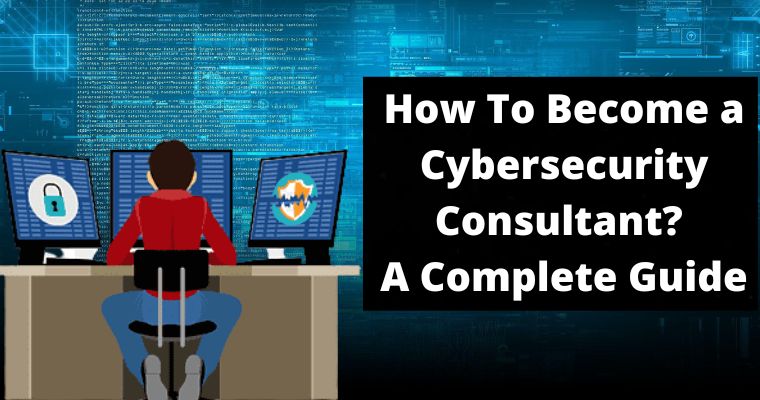First, let’s go through a cybersecurity consultant’s general duties. This employee usually assesses a company’s or organization’s security and danger and then presents solutions and advice on safety precautions and prevention.
As a result, they are a hacker — but they are on the good side.
According to the proper definition of the Cybersecurity Guide, “Cybersecurity contractors are straight-up hackers — not malicious hackers, but hackers in the truest sense of the word; people who are inquisitive and learn how to solve issues utilizing technology.”
Since a malicious hacker attack occurs every 39 seconds, this sort of status is more critical than ever — particularly in the aftermath of COVID-19. According to the FBI, there has been a 300 percent surge in recorded cybercrime since the pandemic.
Table of Contents
The following are on the FBI’s list of security threats
Hacking is described as the unauthorized use and compromise of technology or a device.
Attempts at phishing — The usage of “spoofing tactics” to trick you into disclosing secrets to those who do not have them.
Vishing: These phone-based scams are similar to phishing attempts.
Smishing: These threats are sent by text message.
Pharming: This is where a malware code is mounted on your machine, and you are routed to bogus websites.
A cybersecurity consultant must keep up with current developments and respond to emerging approaches and techniques. For example, among the top cybersecurity threats in 2020 were:
- Phishing has become more complex.
- Ransomware techniques are evolving.
- Cryptojacking is a form of cybercrime.
- Cyber-physical assaults.
- Attacks carried out by the state.
- Attacks on the Internet of Things.
- Smart medical equipment and electronic medical records are under attack.
- The increased risk associated with granting third-party access to the device (vendors, contractors, and partners)
- Vulnerabilities of self-driving cars and linked cars.
A cybersecurity consultant may work for an agency directly or, as the name implies, for client organizations that offer consulting services.
If that is the case, cybersecurity consultants must adjust to working in particular sectors such as finance, shopping, healthcare, hospitality, and so on. What is the ultimate goal? Create evacuation plans and protection precautions for their customers.
Since $6 trillion is projected to be spent globally by business organizations on cybersecurity by 2021, there is a high demand for all levels of cybersecurity specialists, especially security consultants.
Educational Requirements To Become a Cybersecurity Consultant
Anyone with a knack in the field of information technology would be an excellent choice for the job.
You should, however, begin by pursuing a Bachelor’s and Master’s degree program in a related field such as Computer Science, Information Technology, and so on.
The degrees and education you earn will provide you with in-depth knowledge of the profession while also qualifying you for a variety of rewarding career opportunities. Besides that, you can enroll in various educational programs to broaden your skills and visibility.
Key Work Experience
As a cybersecurity consultant is a highly specialized area in the information technology sector, one must advance across many ranks.
Since this is not an entry-level job, you would need to start as a junior professional and work your way up by gaining the necessary skill set and expertise to become a proficient cybersecurity specialist.
However, three to five years of experience in the sector is deemed sufficient if you have gained all of the requisite qualifications;
However, with experience comes faith – because the more experience you have, the more you will be able to showcase your skills and persuade employers alike.
Companies also assume that only seasoned experts will add value to their staff.
You must also ensure that you have a thorough understanding of the most recent malware and security techniques on the market and stay up to date on industry trends across a variety of channels.
Both of these factors will donate to the job experience and skillsets required for cybersecurity consultants.
Job Roles & Responsibilities of Cybersecurity Consultant
Safety analysts, whether operating with a particular organization or consulting with multiple companies, identify possible cybersecurity risks through conducting checks on the infrastructure and looking for potential vulnerabilities.
To defend against hackers, a security expert must learn how they work. Security contractors ensure that their company satisfies the minimum regulatory enforcement standards.
Security experts make recommendations for technology upgrades and can present them to upper management. Suppose the organization has decided on a plan.
In that case, a technology contractor monitors the execution of new security policies and assists with ongoing maintenance. Cybersecurity Experts must be at par with the latest technologies and risk factors in a constantly evolving sector.
They can also educate employees in the company to recognize and defend themselves from information security threats.
Security contractors are hired by businesses to secure their digital properties, including customer records, personalized app coding, and classified information.
Usually, one to three years of experience is needed. Junior positions on a team of IT professionals can be available as entry-level positions.
Key Skills
Employers look for a variety of technological and soft expertise when hiring Cybersecurity Consultants. Let us take a look at these abilities:
Technical abilities:
An individual who wishes to work/function as a Cybersecurity Consultant must be well-versed in the following technological skills:
- Knowledge of penetration testing is needed, as is the ability to calculate the security rating of cyber systems and applications used by the organization with which they operate.
- Firewall protection and maintenance knowledge, including backups and fail-safe functionality.
- Protocols for identifying and avoiding breaches must also be used.
- Advanced persistent threat detection knowledge is crucial, including phishing, social engineering, and network access control.
- Efforts must be undertaken for Encryption procedures and capabilities to understand. It should transmit and receive data over the internet without succumbing to hacker attacks.
- Understanding of programming languages used to store and manipulate raw data. The more familiar the aspirant is with the various programming languages, the better.
- Knowledge of various operating systems. Windows, Linus, UNIX, and other applications under progress or in use by the general public
- A comprehensive understanding of the legal hacking and coding standards is mandatory. Working knowledge of threat modeling and configuration is needed.
Soft Skills
Here are some soft skills needed for success as a Cybersecurity Consultant:
- Communication Skills – One of the most important qualifications that cybersecurity experts would provide is communication skills. Consultants are often senior professionals in an organization.
- They are required to work with their team and share knowledge between companies and teams to ensure that activities are carried out effectively.
- They are still in charge of negotiating and debating proposals and their conditions with customers. Hence, coordination is a necessary skill for completing these assignments.
- Leadership Skills – At the highest levels of a job, you are supposed to manage the whole processes and security unit. As a responsible consultant, one of the most vital qualities that a client can have is leadership ability. Typically, many individuals report to the consultant and request advice from them when necessary, which is when interpersonal qualities come into play.
- Problem Management – However, a Cybersecurity expert should have strong strategic reasoning and problem-solving abilities because he would be dealing with various issues such as cyber-attacks, network instability, data loss, and so on daily. As a result, he must already be prepared for certain scenarios and develop optimal and applicable solutions.
- Aside from this, many other skills such as time management, research skills, risk management, and so on can be useful in being a good Cybersecurity contractor.
Certifications Related to Cyber Consulting
Certifications provide experts with credibility and trust to practice in the fields for which they are accredited. Professional certifications are now required to land a decent job in information technology or some other sector.
Certifications affirm your expertise and experience on a specific topic while also demonstrating that you are up to date on business practices and techniques.
As one of the most rapidly changing fields, cybersecurity necessitates experts who are up to date on business developments.
And staying at the tip of the toes with the industry developments is one of the most important attributes that any reputable cybersecurity contractor can possess.
Salary in the US
According to Payscale, defense contractors receive an estimated annual income of $85,440. Salary opportunities can rise based on various factors, including education, years of experience, place, and industry.
Information technology analysts, a kind of security contractor, were paying more in New York, New Jersey, and Washington, D.C. than anywhere else in the world, according to the Bureau of Labor Statistics (BLS).
With cybersecurity in high demand across sectors, technology consultants may find work across a wide range of fields.
The average salary for a Cybersecurity Consultant in the United States is approximately $131,892 per year, with top earners reaching up to $180,000 annually.
On an hourly basis, this equates to an average rate of around $62 per hour. However, salaries can vary based on factors such as experience, location, and employer.
Entry-level positions in cybersecurity consulting typically start at around $99,500 annually, while those in the 75th percentile earn around $159,000 per year.
The salary range reflects the importance of expertise and experience in the field, with seasoned professionals commanding higher compensation.
However, these figures can vary based on factors such as the consultant’s level of expertise, certifications, and the specific industry they work in.
With the national average growth rate for all jobs expected to be 5.2% over the next decade, defense consultants will have plenty of openings.
Cybersecurity Consulting: In a Nutshell!
Without a doubt, there is an increase in demand for cybersecurity experts today. Given the growing risks and threats in cyberspace, the demand will continue to rise rapidly in the coming years.
As a result, if you want to work as a Cybersecurity Consultant, you’re on the right route. Meanwhile, you have to provide yourself with the right mix of skills and other prerequisites to realize your dreams!!



